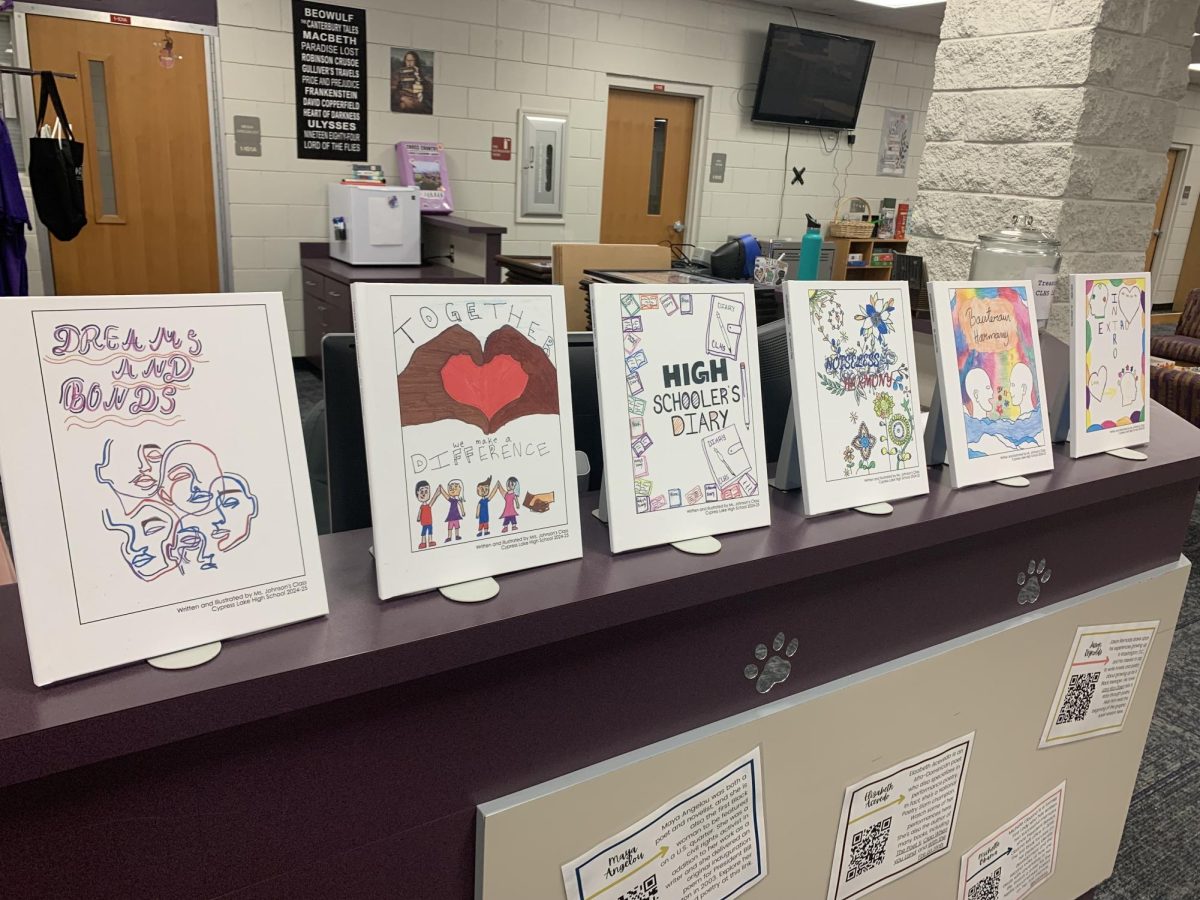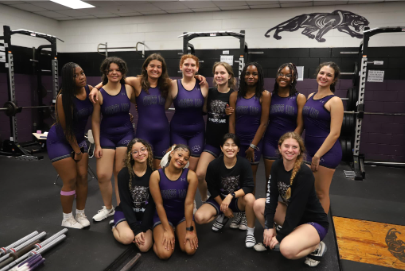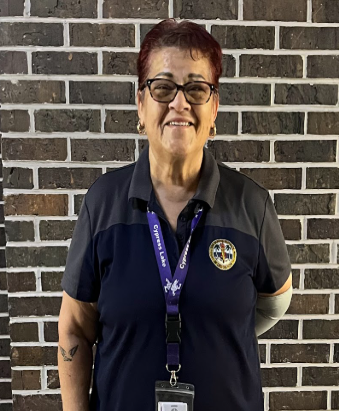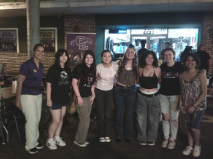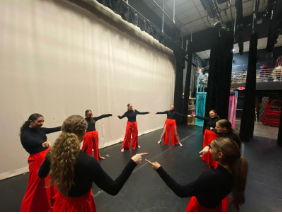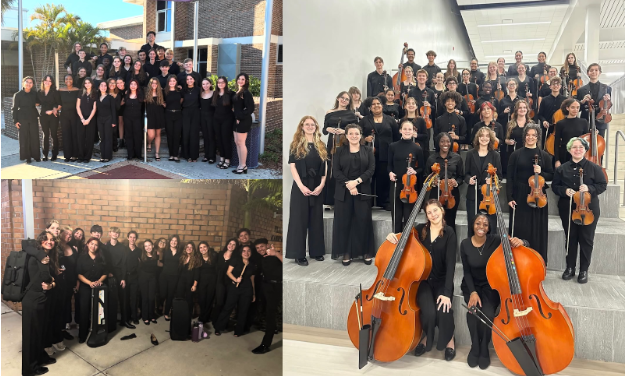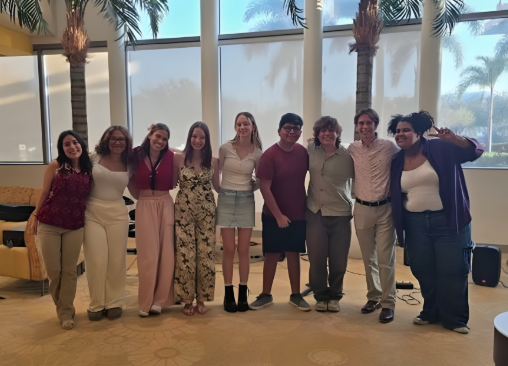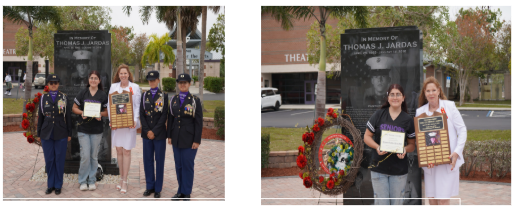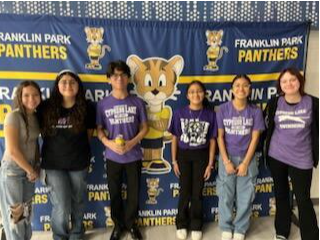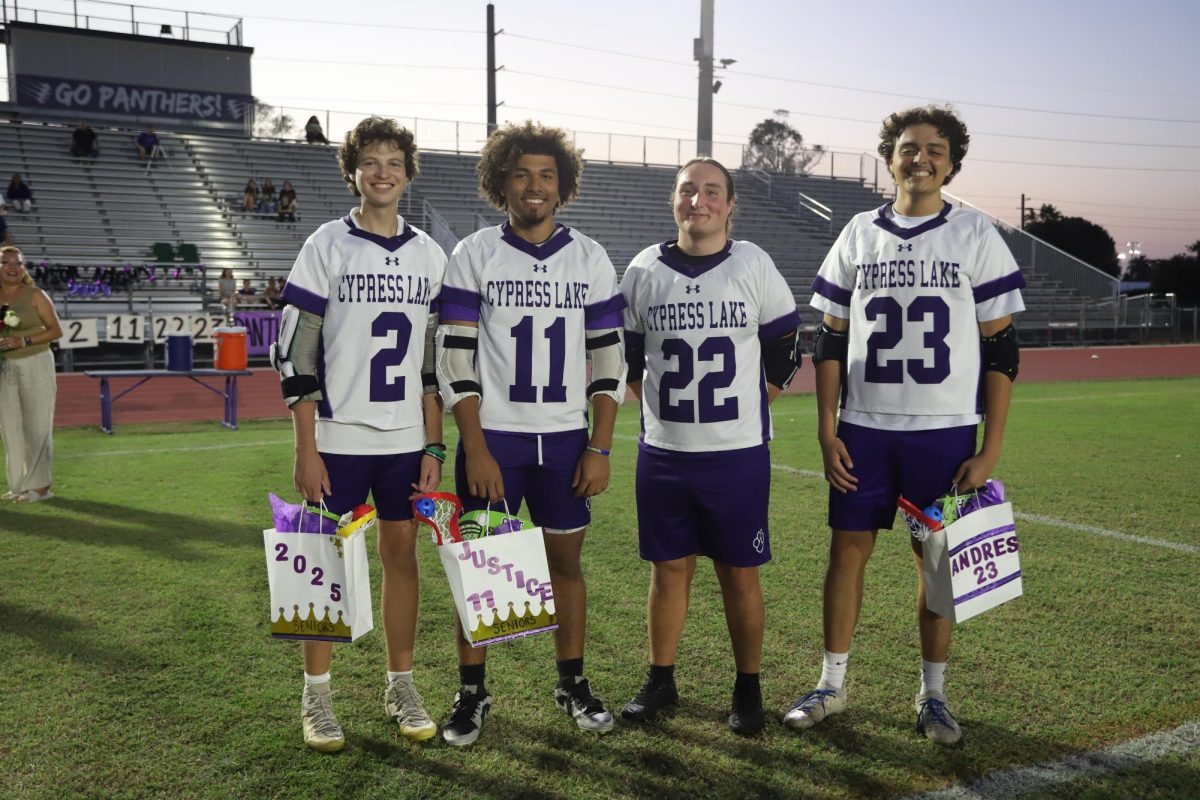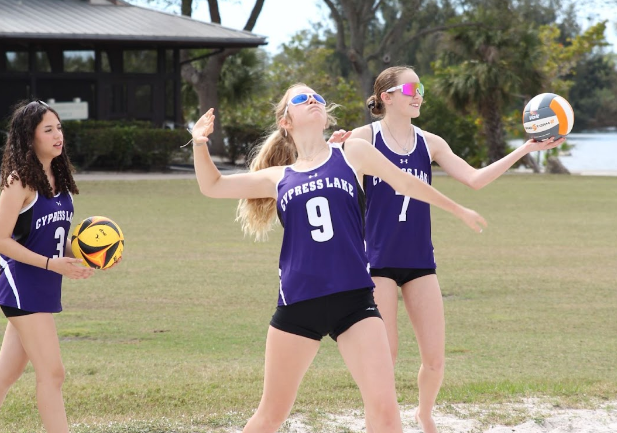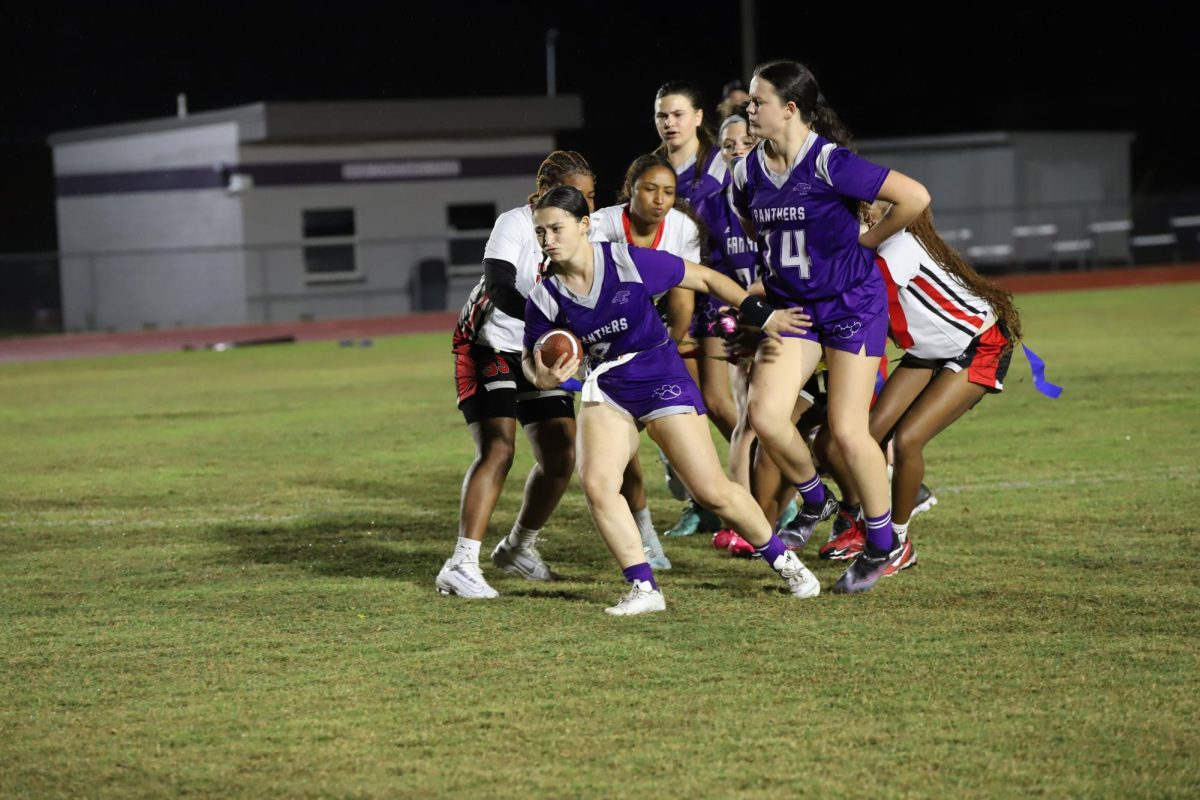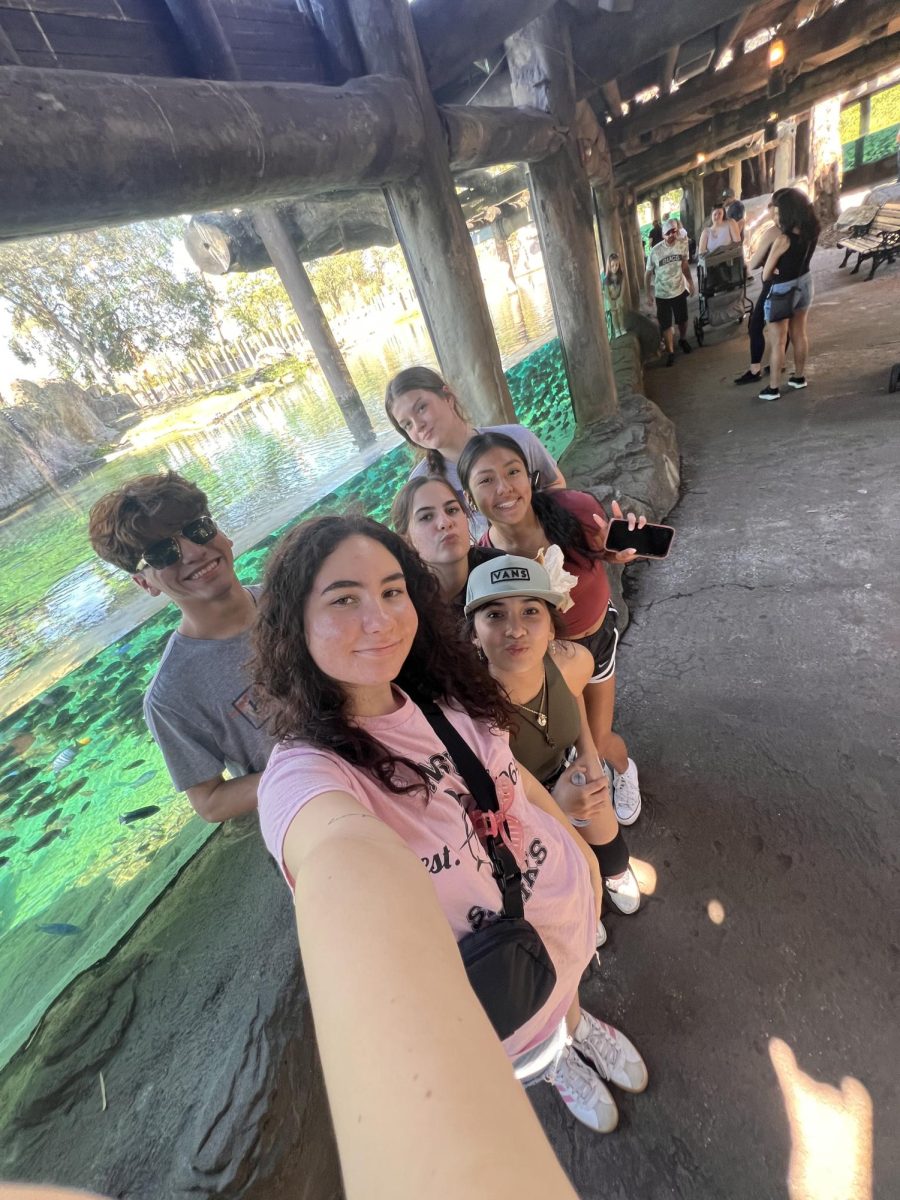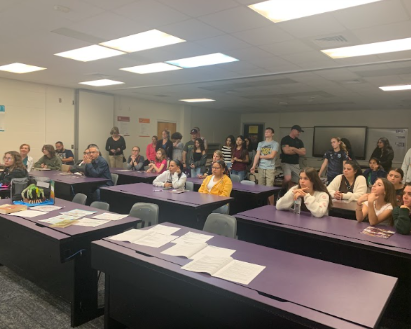Check this story out in Spanish: El Mes de la Herencia Hispana
In the United States, Hispanic Heritage Month is celebrated Sept. 15th through Oct. 15th. Throughout Cypress, students and teachers alike share what they do to celebrate and reflect on what this celebration means to them.
This month is all about celebrating contributions from the Hispanic community to culture and history, connecting us to our roots, but for some, it’s a little hard to feel connected. Imani Brown, born in the United States to a Puerto Rican family, feels that her relationship with her culture is negatively affected by her Spanish speaking. “I feel like if I spoke more Spanish I would be able to connect more, and understand my family,” she says. Although she understands the language, she is not fluent. “It’s hard to explain. I’m not as intertwined with my culture as I could be, which kinda sucks.” Despite this, Imani still has love for her culture, telling me her favorite thing about it is “the connection that we somehow all have to each other.” Her proof? Her mom strikes up conversations with complete strangers who display the Puerto Rican flag.
Kadisha Moreno, also born in the United States to a Puerto Rican family, is happy to celebrate this month in all its meaning. “[Hispanic Heritage Month] means a lot to me because we have such a deep-rooted culture that we aren’t taught a lot unless you have parents that are very active in teaching your culture,” she says. For her, knowing every aspect of her culture -the good, the bad, and the ugly- is important. “I wish that people wouldn’t try to cover up the bad aspects of our history and would emphasize how important it is to be diverse,” she expressed. “Things like colorism and racism that are a part of our history, I think it’s important that they are taught.”
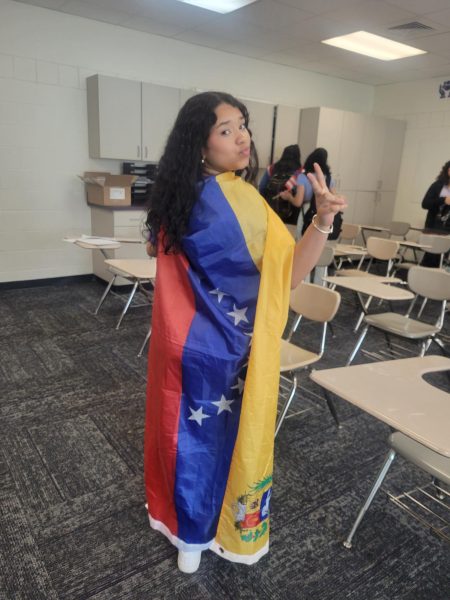 Similarly, students like Yusbely Linares Perez, who was born in Venezuela and then lived in Ecuador for three years before moving to the United States just a year ago, feel this is an important opportunity to teach her own history as well as to learn about other countries. “Hispanic Heritage Month means having people from other countries and different tongues learn about our cultures, music, and words,” Yusbely says. “I think it is important because it makes me remember where I’m from and it also allows me to know about other cultures and allows me to see what we have in common with many cultures,” she adds. “I would like people to learn in-depth about Venezuela’s history and how rich it is in terms of petroleum and how rich it could be if it had better politics.”
Similarly, students like Yusbely Linares Perez, who was born in Venezuela and then lived in Ecuador for three years before moving to the United States just a year ago, feel this is an important opportunity to teach her own history as well as to learn about other countries. “Hispanic Heritage Month means having people from other countries and different tongues learn about our cultures, music, and words,” Yusbely says. “I think it is important because it makes me remember where I’m from and it also allows me to know about other cultures and allows me to see what we have in common with many cultures,” she adds. “I would like people to learn in-depth about Venezuela’s history and how rich it is in terms of petroleum and how rich it could be if it had better politics.”
Like many immigrants, Yusbely misses her family and wishes she could relive the times she spent with her cousins back home. For many students who lived in Hispanic American countries before moving to the United States, this month takes a more melancholic tone as they reminisce on the things that they love -and miss- about their home countries.
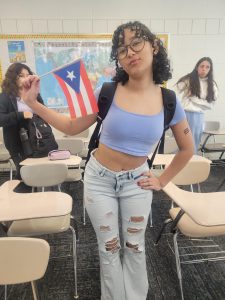 Paola Ogando Garcia, who lived in the Dominican Republic for the first 15 years of her life, feels fondly about the home she left behind. “A memory that fills me with nostalgia is of when I used to go out with my friends and classmates to do after school activities or just hang out on the weekends with my family and my extensive number of cousins and nephews,” she recalls. “What I most remember was the beautiful sunsets in my country with music in the background, mostly from the stores or neighbors. It’s a cozy environment that I wouldn’t trade for anything and I long to relive.” Paola says that while she enjoys and feels great pride in the dances and foods from her country, the best thing about it is the people who make it up. “To me, the gentleness and kindness of Dominicans is something remarkable about the country.”
Paola Ogando Garcia, who lived in the Dominican Republic for the first 15 years of her life, feels fondly about the home she left behind. “A memory that fills me with nostalgia is of when I used to go out with my friends and classmates to do after school activities or just hang out on the weekends with my family and my extensive number of cousins and nephews,” she recalls. “What I most remember was the beautiful sunsets in my country with music in the background, mostly from the stores or neighbors. It’s a cozy environment that I wouldn’t trade for anything and I long to relive.” Paola says that while she enjoys and feels great pride in the dances and foods from her country, the best thing about it is the people who make it up. “To me, the gentleness and kindness of Dominicans is something remarkable about the country.”
Hispanic Heritage Week was enacted into law in 1968 by President Johnson and later expanded into the current 30-day celebration in 1988 by Reagan. All over the school, various Spanish teachers hold events during class to celebrate Hispanic heritage with their students.
Ms. Mills, who teaches Spanish one and two, is grateful for this opportunity.“I think it’s really important, especially with the large Spanish-speaking community that exists.” Personally, Ms. Mills has always shared her culture with her friends; every year, on December 24th (the day Christmas is celebrated in many Spanish-speaking countries), she throws a big party for her friends and her kids. “I make them authentic food that we eat, I’ve made it into a tradition. At night we open the presents and I try to get them to dance.” Her personal celebration and exchange of culture inspire her to encourage students to have their own celebration during her class, when they are encouraged to bring in food from their own cultures. “[Hispanic Heritage Month] is a way of sharing music, costumes, and traditions. Of course, on this occasion we want to share the food, making it a channel for my American students to share in the authentic flavors,” she explains. As much as she loves sharing her culture with her students, on this occasion, she has to leave the celebrations up to them. “Unfortunately, I have 214 students, so it’s not like I can cook a pernil and frijoles for all of them.”
Many Hispanic students are familiar with the English as a Second or Foreign Language (ESOL) program, aimed at improving their English and aiding their integration into school. At Cypress, many of the teachers for this program are Hispanic themselves, and organizing some of these celebrations is important to them. “This country is made up of immigrants and one of the largest communities is Latinos,” explains Ms. Eddy. “You can see this in the food, in the way people speak. Our community is very friendly.” The teachers organized theme days, such as “Spanish Word”, when students come together to build a wall of words unique to their country, and “Rep Your Flag”, when students do just that and show off their home countries. “Even after we move it’s important to have our roots and leave that legacy,” says Ms. Yamila. “It’s our month, but it’s also for students from all over the world to share in our roots, our identity.”
Hispanic Heritage Month ended earlier this week, but the celebration and appreciation that Hispanic students have for their culture doesn’t. Many, like Samai Portilla Morera, carry certain things about their heritage with them at all times. “My favorite phrase from Costa Rica is “Pura Vida”, which is an expression used to transmit positivity, gratitude, and happiness,” she explains. “It means that we should be grateful for the things that we have and not the things we don’t.” A useful reminder in a time that, while meant for celebration and connectivity, often makes us reminisce on things we used to or could have had.

